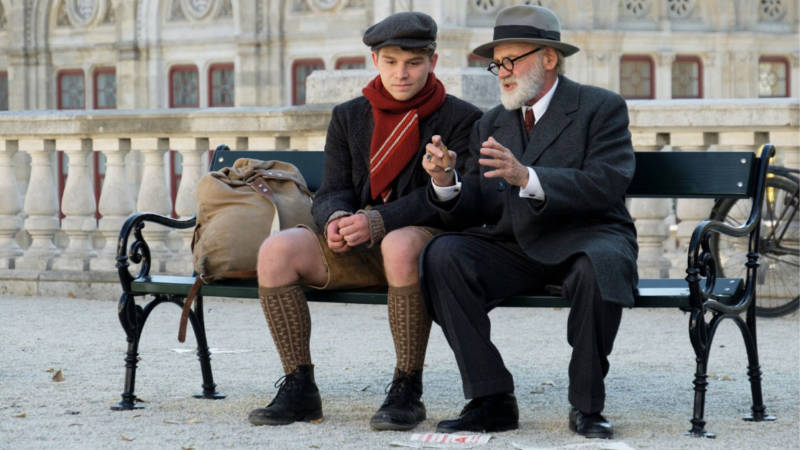For those of us who weren’t alive in the 1930s and are not remotely nostalgic about that globally menacing period, the current moment is deeply disturbing. Look at it this way: In the 39 years that the S.F. Jewish Film Festival (July 18–Aug. 4) has existed, no other local festival has shown as many films about the ’30s. Those cautionary historical parables and visceral documentaries, for all their resonance, didn’t reflect present-day events. Now they do.
The autumnal palette and ominous rumblings (on the radio and in the streets) with which veteran Austrian director Nikolaus Lautner infuses his adaptation of The Tobacconist, Robert Seethaler’s novel about a village teenager’s sexual and moral awakening in 1937 Vienna, provide an undercurrent of dread to what, in another time and place, would be “just” a bittersweet coming-of-age story.
Franz’s youthful perspective is limited, of course, but he has the good sense to pursue an acquaintanceship with wise old Sigmund Freud (Bruno Ganz, in one of his final roles), a regular customer at the small tobacco shop where he works. Freud encourages Franz to write down his dreams—which Lautner depicts beautifully, if not subtly, and which tap into the undercurrents of Franz’s confusion as well as Austria’s collective unconscious as it bubbles to the surface.
To be sure, the SFJFF program encompasses every genre of filmmaking on a host of subjects. The Holocaust, its roots and ongoing repercussions, retains its attraction to filmmakers, and remains one of the SFJFF’s central themes. The comforting distance between the past and the present seems to have evaporated, however, and that’s an unsettling feeling. —Michael Fox


